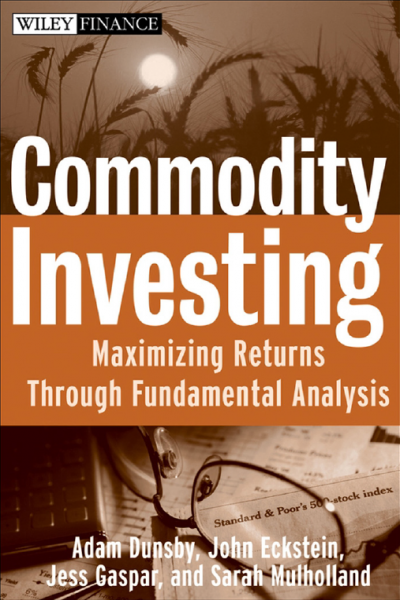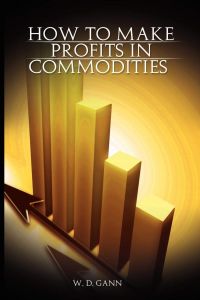Commodity Investing Maximizing Return through Fundamental Analysis
Hiểu về phân tích cơ bản khi đầu tư trên sàn giao dịch hàng hoá.
Đặt in thành sách tại HoaXanh, xem sách in mẩu trong video bên dưới.
- 100,000đ
- Mã sản phẩm: COM151504
- Tình trạng: 2
The purpose of this book is to provide those who would approach commodities from an investment perspective with information, tools, and modes of thinking that will inform their analyses. Wedo not take the position that commodities are going Up! Up! Up! nor do we take the position that they are going Down! Down! Down! Rather, we hope that upon completion readers will have a base of knowledge that will allow them to analyze specific commodity investments and strategies according to their individual characteristics and their own times. Undoubtedly, there will be opportunities to profit in the commodity markets for those who have the requisite skills. That being said, it is fair to say that the authors of this work are skeptical that the current rush to passive, long-only commodity investments will yield the intended results. The selection of commodities as a major investment theme is relatively new. Of course, commodities have been around for a long time, but the notion that an investor or pension fund would allocate a substantial portion of an investment portfolio to plain old commodities such as coffee is recent. Because of this, the investment industry is still learning. There is a shortage of trained commodity analysts, and there is a shortage of good books on the subject of commodity investing. It is our goal to make this book an addition to the short shelf of good ones. Many academics have written about commodity investing, and much of it is good and useful; on the whole, however, it is detached from the commodities themselves. Academics generally do two things when researching the commodity markets. The first is to look at the overall historical returns of a commodity portfolio and compare them with the returns of other assets such as equities. The second is to explore the shape of the futures curve with the obligatory discussion of Keynes’s theory of normal backwardation. These two approaches are useful, and we will apply them to some extent in what follows, but notice that no mention was made of specific commodities. Whether the portfolio contains egg futures or oil futures is not considered interesting. The academic approach generally employs the same modes of analysis without regard to the specific commodities analyzed. There is no notion of how an industry is changing or what the long-term supply–demand dynamic is. One of the premises of this book is that investors should have a basic understanding of the individual commodities. If you are approached by a manager who wants you to invest in a North Pole coffee plantation, you should be able to do more than just recite the mantra that commodities have yielded equity-like returns during the past 30 years.


